Squatting, also known as adverse possession, is a legal process that allows someone to claim ownership of a property they have lived on - without permission - for an extended period of time. In Virginia, this process can take up to twenty years in order to be successful.
To avoid squatters taking advantage of your property it is important to know the laws and regulations put in place by the state. Regularly check your land records, be aware of who is living on or near your property, and if necessary post notices that you are the rightful owner.
Additionally, make sure that any tenants or occupants of the property have valid leases or contracts with you in writing. Knowing the law and being aware of potential squatters is key to avoiding problems with squatter's rights in Virginia.
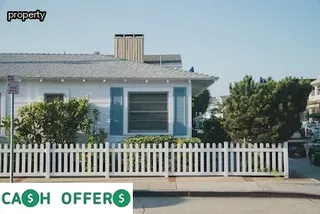
In Virginia, squatting laws are governed by the state's Code of Virginia, which establishes the rights and responsibilities of landlords and tenants. Squatting is the act of occupying a space without having rental or ownership rights to it.
In Virginia, squatters can gain certain rights after living in one property for 15 years or more. These rights are called adverse possession and include exclusive use of the property and even title to it after a certain period of time.
Landlords should be aware that squatters may become tenants with certain legal rights if they remain in the property for a long enough period, so it is important to understand how these laws work in order to protect their interests. Additionally, landlords should also understand that Virginia has other tenant-landlord laws that will apply regardless of whether a squatter is present on the property.
Knowing these laws and your rights as a landlord can help you address squatting issues and avoid any potential disputes.
Understanding adverse possession is key for landlords in Virginia who want to uncover squatter's rights. Adverse possession is a legal concept that allows someone to gain ownership of property by occupying it for a certain amount of time.
In Virginia, the law requires that an individual take up residence on the property for 15 years continuously, with no interruption by the landowner and with clear intent to own the property. The individual must also pay all taxes and use the property as if they are its rightful owner.
This includes living on the property, making necessary repairs and improvements, and using it in a way that would be consistent with a true owner. If these conditions are met, then the squatter can obtain legal title to what they were previously using without permission from the landowner.
It is important for landlords in Virginia to understand this principle so they can better protect their interests when dealing with squatters on their properties.
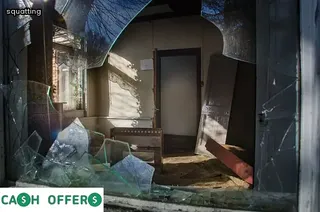
Adverse possession is a legal concept that grants title to property to a party who has openly possessed or occupied it for a certain period of time. It is an important element of squatter’s rights in Virginia, and understanding its nuances can help landlords protect their interests when dealing with squatters.
According to Virginia law, the “adverse possessor” must demonstrate exclusive possession of the property in question for at least 15 years in order to gain title. This possession must also be “hostile” - that is, open, notorious, uninterrupted and exclusive - and made under the belief that they have a legitimate right to the land.
Furthermore, the adverse possessor must pay all applicable taxes on the property during the 15-year period in order to fulfill all of these elements. When these criteria are fulfilled, then title may pass from landlord to squatter based on Virginia's adverse possession law.
When discussing the issue of squatter's rights in Virginia, it is important to understand the legal perspective of color of title. In general, this term refers to a situation where a person legally owns a piece of property, but doesn't have adequate documentation to prove their ownership.
This can be an issue in cases when the original deed or certificate is lost or destroyed over time. Color of title can be established through open possession and use of the land for a specific period of time, as well as other means such as adverse possession and estoppel by deed.
Landlords should be aware that if color of title has been established on their property by squatters, they may not have legal grounds to remove them from the premises without court intervention. It is essential for landlords to understand the various ways that color of title can be established in order to protect their rights and interests in the case of squatter's rights disputes in Virginia.

Removing squatters from your property can be a daunting task, but it doesn't have to be. Knowing the laws specific to Virginia can help landlords determine the best course of action for their particular situation.
Start by understanding what constitutes a squatter in Virginia and how to identify them; this includes recognizing signs of unauthorized occupancy. Once identified, it is important to remain aware of all applicable state and local regulations that govern eviction proceedings as well as any tenant protections that may apply.
Landlords should also take steps to protect their rights and property by giving notice to the occupants and filing an unlawful detainer action in court if necessary. Additionally, they should seek legal counsel to ensure the process is carried out correctly.
Finally, landlords must understand their rights when dealing with tenants who are not paying rent or other associated costs such as utilities or repairs. By taking these steps, landlords will be better equipped to handle a squatter situation and successfully remove them from their property.
As a landlord in Virginia, it is important to understand the laws and regulations around squatters’ rights. In some cases, squatters may be able to claim adverse possession of your property if they can prove that they have been in continuous and exclusive possession of the property for 15 years or more.
To protect yourself from unwanted tenants taking over your land, you should make sure you are aware of all applicable laws and take steps to ensure that there is no ambiguity about who owns the property. This includes regularly inspecting the property for any signs of occupancy, having clear written leases with tenants, and keeping accurate records of all payments made related to the property.
Additionally, be sure to review and renew any lease agreements before their expiration date to avoid any claims of adverse possession. By familiarizing yourself with Virginia's laws on squatters' rights and taking proactive steps to protect your property, you can rest assured knowing that your land will remain yours.
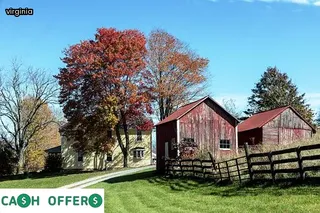
PropertyCtrl is a great tool for Virginia landlords to utilize in order to protect their property from unwelcome squatters. By taking advantage of the software's features, landlords can establish a clear understanding of the rights they have when it comes to dealing with any squatters on their land.
PropertyCtrl allows users to set up notifications that alert them when someone enters their property without permission, as well as create and store documents regarding any squatter situations that arise. It also enables easy communication between landlords and tenants, so any issues can be addressed quickly and effectively.
Additionally, PropertyCtrl makes it simple for landlords to document any activities related to squatting on their property, helping them build a strong case against potential violators. With all of these features combined, PropertyCtrl offers comprehensive protection for Virginia landlords against unwanted squatters on their land.
Arizona's laws on squatter’s rights are complex, but it is important for landlords to understand them. Squatters can have certain rights if they have resided in a property without the landlord's permission and knowledge for an extended period of time.
These rights may include the right to remain on the property, access to utilities, and even the ability to file a claim for damages against the landlord or homeowners association. Landlords should be aware that each state has different laws regarding squatters and their rights; Arizona is no different.
To ensure that landlords are in compliance with Arizona law when it comes to dealing with squatters, it is important to understand what constitutes a squatter and what legal remedies may be available for landlords in these situations. Additionally, landlords should familiarize themselves with relevant court cases related to squatting in Arizona so they can properly address any potential issues that may arise from having a squatter on their property.
Knowing Arizona’s laws on squatters and their associated rights will help landlords better protect themselves and their properties from potential issues related to squatting.
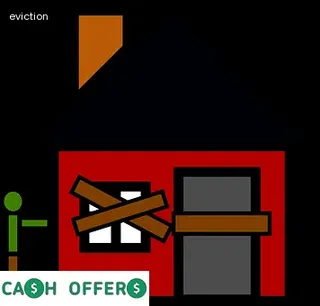
Georgia's squatter's rights laws can be complex and confusing. It is important for landlords to understand all of the legal nuances related to squatters in order to protect their property rights.
Squatting, or occupying a property without permission from the owner, is illegal in Georgia, yet it does happen. In certain situations, a squatter may gain certain rights after occupying a property for an extended period of time.
To help landlords understand these rights, this guide will provide an overview of what constitutes squatters' rights in Georgia and how they can protect themselves from potential legal issues. Landlords need to know that squatters may be able to acquire certain legal protections if they have occupied the property for at least seven years and have paid taxes on it during that time frame.
Additionally, those who have held possession of the property through adverse possession must show that they have continuously maintained and improved the land throughout their tenure. Understanding these rules and regulations are critical for landlords so they can take necessary steps to ensure their legal rights are protected when dealing with squatters in Georgia.
If a squatter moves into your home in Virginia, you may be wondering what options are available to you. As a landlord, it is important to understand the laws surrounding squatters’ rights in your area and how they impact your property.
Depending on the situation, there may be several courses of action that you can take to reclaim your rental. If the squatter is occupying the property without permission or paying rent, you can serve them with an eviction notice.
You can also file an unlawful detainer lawsuit if they do not leave after receiving an eviction notice. In some cases, you may need to get a court order or obtain a writ of possession from the sheriff's office to reclaim your property.
Additionally, Virginia law allows landlords to sue squatters for damages caused by their occupation of the premises. Understanding what legal remedies are available for landlords dealing with squatters in Virginia is essential for protecting your rights and interests as a homeowner or landlord.
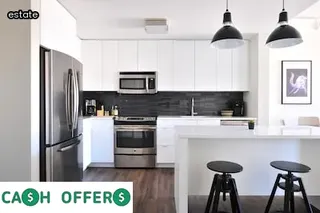
Assessing the legalities behind evicting a squatter in Virginia is an important process for landlords to understand. Squatting is a form of unauthorized possession of land or rental property, and it is illegal in Virginia.
Landlords must be aware of the proper procedure for evicting squatters in order to protect their rights as owners. Depending on the situation, a landlord may need to take certain steps before filing a complaint against the squatter.
First, they need to determine if the squatter has any valid claims to being on the property. If so, then the landlord should look into alternatives such as negotiation before resorting to eviction proceedings.
It is also important for landlords to understand that by failing to follow proper procedures during an eviction, they may be liable for damages and penalties under Virginia law. It is essential for landlords to know their rights when it comes to dealing with squatters in Virginia and ensure that all legal requirements are met when attempting an eviction.
For landlords in Virginia dealing with a squatter, there are a few self-help options available as an alternative to eviction. One of the first steps is to gain possession of the property and make sure it is secure.
This should be done by posting a notice in a conspicuous location on the property that the squatter has been given notice to vacate. If this doesn't work, then the landlord can file for an ejectment suit in court.
This legal action requires proof that the landlord has title to the property and that the squatter does not have permission or rights to remain on it. A third option for Virginia landlords is to pursue a claim of detinue, which involves recovering personal property such as furniture or appliances that may have been left behind by a squatter.
In all cases, it's important to understand local laws and regulations relating to squatters' rights before taking any action against them.

Exposing the Mythology Surrounding Squatter's Rights in Virginia, it is important for landlords to understand when to seek professional help with a squatter issue. Unfortunately, there are many myths out there about squatting rights in Virginia and clearing up these misconceptions can be time consuming.
It is important to note that Virginia does not recognize the concept of "adverse possession" which is often mistakenly referred to as squatters' rights. This means that without legal action, a squatter will not gain ownership rights even if they have occupied the property for an extended period of time.
The best way to deal with a squatter issue is to contact an experienced landlord-tenant attorney who can advise on the proper steps and procedures necessary to remove a squatter from your property. A lawyer can help provide legal advice on how to legally evict a squatter and determine if any damages are owed due to their occupancy.
Additionally, they can review all relevant laws and regulations that may apply when dealing with a squatter situation so that landlords know their rights and obligations under the law.
In Virginia, squatters’ rights, also known as adverse possession, are a legal concept that allows a person to acquire title to property they occupy and use for a certain period of time. The law is designed to protect those who possess a piece of land honestly, even if they do not have the proper paperwork or title to the property.
In order for squatters’ rights to apply in Virginia, the squatter must be in “actual, open and notorious” possession of the land for at least 20 years. During this time, the squatter must pay all taxes and other expenses related to the property.
If these conditions are met, then the squatter can seek title to the land by filing a lawsuit in court. As a landlord in Virginia, it is important to understand how squatters’ rights work so that you can take protective measures against potential squatters on your property.

Evicting a squatter in Virginia as a landlord requires knowledge of state laws and procedures. In Virginia, squatters may have rights to your property if they have lived there for an extended period of time.
For this reason, it's important to understand the legal process for evicting a squatter before taking action. Depending on the situation, you may be able to simply ask the squatter to vacate the premises or you may need to file an unlawful detainer lawsuit with your local court.
Generally, the process will involve serving the squatter with a notice of eviction and giving them sufficient time to leave before taking legal action. Additionally, it's important to understand that squatters may have certain rights under Virginia law which can complicate the eviction process.
Therefore, if you're attempting to evict a squatter in Virginia it is essential that you seek professional guidance from an experienced attorney who can help you navigate through this complicated process and ensure that you are following all applicable laws.
When it comes to squatters’ rights in Virginia, landlords should be aware of the shortest time for a squatter to gain legal rights to a property. Depending on the situation, a squatter can obtain these rights after 12 years of continuous occupancy.
This is referred to as adverse possession; however, some states only require 7 years of occupancy for the same outcome. Virginia law requires that the squatter or tenant must have had exclusive use and control over the property during this time period to gain ownership rights.
This means that they must have used it as if they owned it, paid taxes on it, and made needed repairs. Additionally, there must be evidence that the landlord was aware of this possession but chose not to take action against them.
If all criteria are met during their residency period, the squatter may be able to gain title to the property through adverse possession in Virginia after 12 years.
In Virginia, a property owner can claim adverse possession if they satisfy certain requirements. To begin the process of adverse possession, you must show that you have been in actual and exclusive possession of the property for 15 years or more.
This means that you, or someone claiming to be in rightful ownership of the land, must have maintained physical control over it for this amount of time. Additionally, your occupation must be open and notorious; meaning that any other person aware of the circumstances should be able to reasonably determine who is using the land as their own.
Finally, you must demonstrate that your possession has been hostile, meaning it was not with permission from the legal owner or tenant. If all these conditions are met, then the squatter may have a right to claim title to the property through adverse possession.